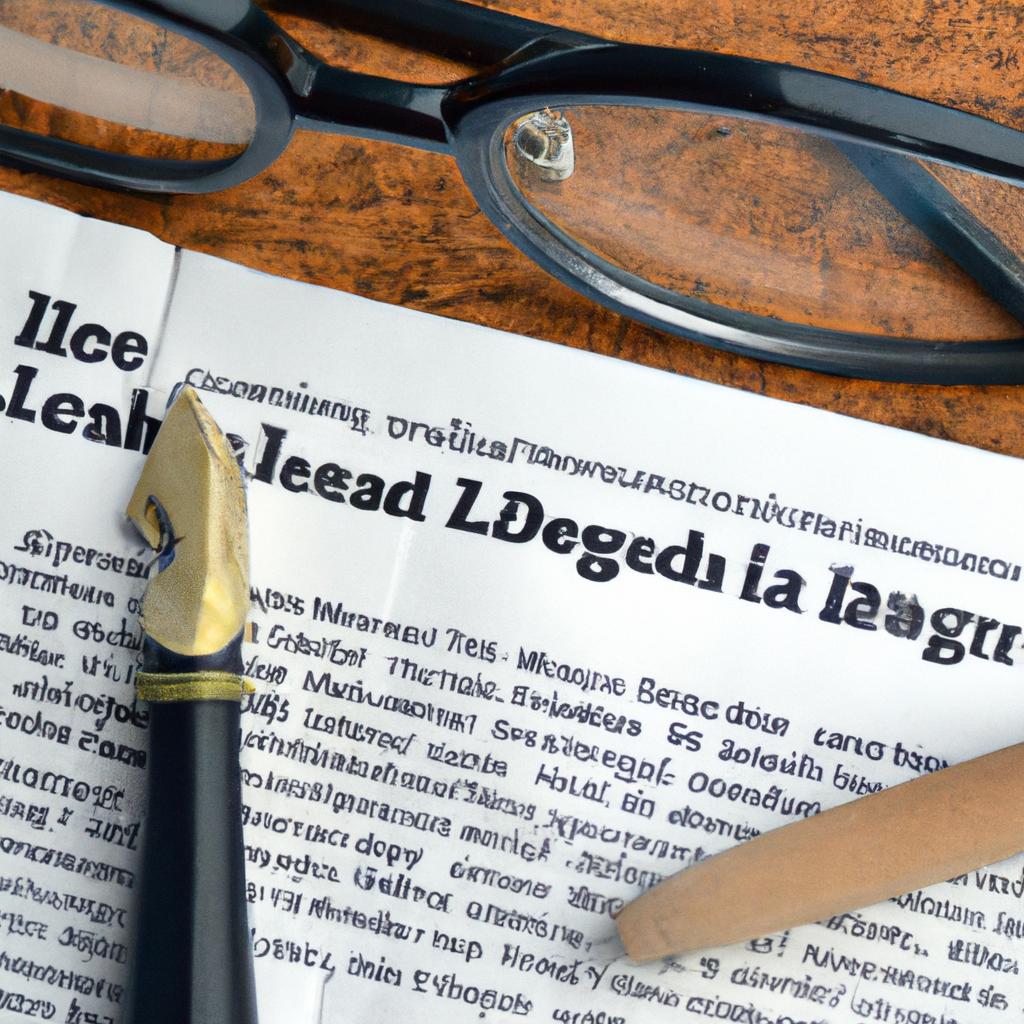In the intricate realm of property ownership, possessing a comprehensive understanding of the legal documentation that accompanies a house deed is paramount. As seasoned practitioners in the field of estate planning and real estate law, the team at Morgan Legal Group, headquartered in the bustling metropolis of New York City, is well-versed in the process of obtaining a house deed copy. Join us as we unravel the complexities of this crucial document and provide insight into the steps necessary to safeguard your property rights.
Steps to Secure a Copy of Your House Deed
When it comes to securing a copy of your house deed, there are several important steps to follow. The first step is to locate your property’s legal description, which can be found on the original deed or on your property tax statement. Once you have this information, you can proceed to request a copy of your deed from the county clerk’s office where the property is located.
Next, you will need to pay a small fee to obtain a certified copy of your house deed. This document serves as official proof of ownership and is essential for various legal transactions, such as selling or refinancing your property. By following these simple steps, you can easily secure a copy of your house deed and ensure that your property rights are protected.

Understanding the Importance of a House Deed Copy
When it comes to owning a property, having a house deed copy is essential for various reasons. This legal document not only serves as proof of ownership but also provides important details about the property and its history. is crucial for homeowners to protect their investment and ensure clarity in any property-related transactions.
Obtaining a house deed copy may seem like a daunting task, but with the right guidance, it can be a straightforward process. To get started, homeowners can follow these steps:
- Identify the county clerk’s office where the property is located.
- Request a copy of the house deed by filling out the necessary forms.
- Pay a fee for the copy of the deed.
- Receive the house deed copy and keep it in a secure location.

Navigating the Legal Process to Obtain a House Deed Copy
When navigating the legal process to obtain a copy of your house deed, it is essential to understand the steps involved to ensure a smooth and successful outcome. The first step is to determine the county in which the property is located, as deeds are typically recorded at the county clerk’s office. Once you have identified the county, you will need to request a copy of the deed from the clerk’s office. This can usually be done in person, by mail, or online, depending on the county’s procedures.
- Identify the county in which the property is located.
- Request a copy of the deed from the county clerk’s office.
- Submit the required documentation and payment for the copy of the deed.
After submitting the necessary documentation and payment, the clerk’s office will process your request and provide you with a certified copy of the house deed. It is important to review the deed carefully to ensure that all the information is accurate and up to date. If there are any discrepancies or errors on the deed, you may need to take further legal action to correct them.

Expert Insights on Protecting Your Property Rights
To obtain a copy of your house deed, the first step is to visit the local county clerk’s office where the property is located. You will need to provide the address of the property and your identification to request a copy of the deed. The clerk will then search their records and provide you with a copy of the deed for a fee. It is important to keep this document in a safe place as it is proof of ownership of the property.
Another option to get a house deed copy is to contact a title company or a real estate attorney. They have the resources and knowledge to obtain a copy of the deed for you. By hiring a professional, you can ensure that the process is done correctly and efficiently, saving you time and potential headaches. Remember, having a copy of your house deed is vital to protecting your property rights and ensuring that you have all the necessary documentation for any future transactions related to the property.
| Pros | Cons |
|---|---|
| Easy access to legal advice | Additional cost |
| Efficient process | Reliance on third party |
Q&A
Q: What is a house deed and why is it important?
A: A house deed is a legal document that proves ownership of a property. It is important because it establishes who has the legal right to possess and use the property.
Q: How can I obtain a copy of my house deed?
A: To obtain a copy of your house deed, you will need to contact the county clerk’s office or recorder’s office in the county where the property is located. You can request a copy in person, by mail, or sometimes online.
Q: What information do I need to provide when requesting a house deed copy?
A: When requesting a house deed copy, you will typically need to provide the property address, the owner’s name, and the legal description of the property. You may also need to pay a fee for the copy.
Q: Can I request a house deed copy if I am not the current owner of the property?
A: Yes, you can still request a copy of a house deed even if you are not the current owner of the property. However, you may need to provide additional documentation or proof of your relationship to the property owner.
Q: How long does it take to receive a copy of a house deed?
A: The time it takes to receive a copy of a house deed can vary depending on the county and the method of request. In some cases, you may be able to receive a copy on the same day, while in others it may take a few days or weeks.
Key Takeaways
Whether you’re a new homeowner looking to keep your documents organized, or a curious history buff interested in tracing the roots of your property, obtaining a copy of your house deed can provide valuable insight and peace of mind. Hopefully, this guide has shed some light on the process and empowered you to take the necessary steps to secure your own copy. Remember, a house deed is not just a piece of paper—it’s a symbol of ownership and a key to understanding the past. So go ahead, dive into the world of property records and unlock the secrets of your home’s history. Happy exploring!

